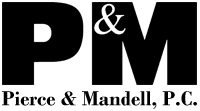Call Us Today!
(617) 720-2444
Expert and Cost-Effective
Legal Advice & Services
 By: Kate Auerbach
By: Kate AuerbachThe Annual List of Corporations Subject to Taxation in Massachusetts (the “List”) is used to determine which entities or corporations are entitled to certain types of local property tax exemptions. In the past, any entity seeking to be included on the List had to file a one time application and, once granted, the classification and tax exemptions remained in place indefinitely unless revoked. However, the recently enacted directive 12-5, New Massachusetts Requirements for Manufacturing Corporations to Obtain Local Property Tax Exemptions on Machinery, alters the process.
All personal property owned by Massachusetts and non-Massachusetts residents and business located in Massachusetts is taxable unless specifically exempted by law. There are numerous exemptions depending on the ownership entity or use of the property. All corporations are specifically exempt from tax for all personal property that is not machinery or a network of poles, underground conduits, wires and pipes. Thereafter, corporations are generally classified into three categories, each with a different set of specific exemptions for all or certain categories of machinery.
First, corporations classified as manufacturing are not taxable on any machinery. The corporation must appear as a designated manufacturing corporation on the list to receive the exemption. Additional exemptions may be available for research and development corporations in communities that adopt the local option enabled G.L. c. 59, §5, cl. 16(3). A classified R&D corporation is entitled to the same exemptions as a classified manufacturing corporation, but only in the communities that have accepted the local option.
Second, utility, insurance, and financial institution corporations are are taxable only on machinery used in manufacture or supply and distribution of water. Utility, insurance and financial institution corporations are exempt from taxation on all other machinery.
Business corporations, the third category, are taxable on machinery, except that machinery that is the corporation's stock in trade, or is directly used in laundering and dry cleaning, refrigeration of goods and air-conditioning of premises, or a selling, purchasing, accounting or administrative function, is exempt.
A corporation formed solely to obtain a property tax benefit, that is not in business to earn a profit utilizing the labor of employees, is not entitled to the business corporation exemptions. Conversely, a partnership, association, trust, limited liability company or other legal entity that is not incorporated, but is treated as a corporation for federal income tax purposes, either under federal default rules or by election, is treated as a business corporation for purposes of local property taxation and exemption, with the exception of an unincorporated homeowners association, utility, financial institution or insurance company.
With the emergence of Directive 12-5, now, an annual certification will be required through the Department of Revenue website, instead of the one-time filing. Effective January 1, 2013, any entity seeking to be included on the List must file an Annual Certification of Entity Tax Status through the Webfile for Business website by April 1st of the calendar year for which the inclusion on the List is sought. A failure to electronically file the certification by April 1st may result in the entity not appearing on the List, and consequently, the entity may lose the local property tax benefits entitled to entities that are properly included on the List.
Any entity that is treated as a disregarded entity or a partnership or is otherwise not treated as a corporation for federal income tax purposes (other than a QStub) is not entitled to appear on the List, and is not entitled to tax exemptions afforded to corporations under G.L. c. 59, §5, cl. 16 (2 & 3). Further, any such entity that previously appeared on the List will be removed. Entities that are treated as corporations for federal income tax purposes may file and be included on the List.
The business lawyers at Pierce & Mandell can assist large and small businesses in navigating the new regulations. Contact us.